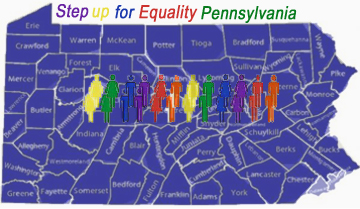 I saw this below quote posted somewhere yesterday after the news broke that Proposition 8 in California was overturned:
I saw this below quote posted somewhere yesterday after the news broke that Proposition 8 in California was overturned:
“9th Circuit Court in California overturns the rights of the people in today’s ruling on gay marriage. Remember the time when a majority ruled in this country?”
And that got me thinking.
So many of our important human rights decisions in America’s history would likely not have ever been made if it had been put to a popular vote–or up to majority rule.
What if, in 1865, the abolition of slavery was put to a vote instead of the 13th amendment being added to the Constitution? What would the outcome have looked like if the Civil Rights Act of 1875 had been put to a majority rule vote? During World War I, blacks served in the United States Armed Forces in segregated units. Pressure to end racial segregation in the government grew among African Americans and progressives after the end of World War II. On July 26, 1948, President Harry S. Truman signed Executive Order 9981, ending segregation in the United States Armed Forces. Chances are that such an executive order at that time in American history never would have survived a popular vote by the majority rule. It is not a stretch to imagine what would have happened in the 1960’s if racial segregation was put to a vote instead of laws being passed against it. Such as with the Civil Rights Act of 1964. I imagine that if that had been put to a “majority rule” popular vote back then — it never would have happened.
“No State shall make or enforce any law which shall abridge the privileges or immunities of citizens of the United States; nor shall any State deprive any person of life liberty or property without due process of law, nor deny to any person within its jurisdiction the equal protection of the laws.”
Even if a lot of people within a given State want to, rights are not supposed to be put up for a vote.
“Fundamental rights may not be submitted to a vote; they depend on the outcome of no elections.” (Prop. 8 Trial)
Based on the evidence at trial, Judge Walker found:
1. “Individuals do not generally choose their sexual orientation. No credible evidence supports a finding that an individual may, through conscious decision, therapeutic intervention or any other method, change his or her sexual orientation.”
2. “California has no interest in asking gays and lesbians to change their sexual orientation or in reducing the number of gays and lesbians in California.”
3. “Same-sex couples are identical to opposite-sex couples in the characteristics relevant to the ability to form successful marital unions. …”
4. “Marrying a person of the opposite sex is an unrealistic option for gay and lesbian individuals.”
5. “The availability of domestic partnership does not provide gays and lesbians with a status equivalent to marriage because the cultural meaning of marriage and its associated benefits are intentionally withheld from same-sex couples in domestic partnerships.”
6. “Permitting same-sex couples to marry will not affect the number of opposite-sex couples who marry, divorce, cohabit, have children outside of marriage or otherwise affect the stability of opposite-sex marriages.”
7. “Proposition 8 places the force of law behind stigmas against gays and lesbians, including: gays and lesbians do not have intimate relationships similar to heterosexual couples; gays and lesbians are not as good as heterosexuals; and gay and lesbian relationships do not deserve the full recognition of society.”
8. “Proposition 8 increases costs and decreases wealth for same sex couples because of increased tax burdens, decreased availability of health insurance and higher transactions costs to secure rights and obligations typically associated with marriage.”
9. “Proposition 8 singles out gays and lesbians and legitimates their unequal treatment. Proposition 8 perpetuates the stereotype that gays and lesbians are incapable of forming long-term loving relationships and that gays and lesbians are not good parents.”
10. “The gender of a child’s parent is not a factor in a child’s adjustment. The sexual orientation of an individual does not determine whether that individual can be a good parent. …”
So, what’s next? That is not exactly clear. This issue will eventually go before the  Federal Supreme Court as lawyers on both sides expect the ruling to be appealed and ultimately reach the U.S. Supreme Court during the next few years. And then eventually (hopefully) D.O.M.A. will be overturned — paving the way for Federal recognition of same-sex unions across State lines.
Federal Supreme Court as lawyers on both sides expect the ruling to be appealed and ultimately reach the U.S. Supreme Court during the next few years. And then eventually (hopefully) D.O.M.A. will be overturned — paving the way for Federal recognition of same-sex unions across State lines.
 Marriage & Relationship Recognition
Marriage & Relationship Recognition
 GLBT
GLBT
 same sex marriage
same sex marriage
 domestic-partnership
domestic-partnership
 same-sex-relationships
same-sex-relationships
 lgbt
lgbt
 prop 8
prop 8
 proposition 8
proposition 8
Read Full Post »

























